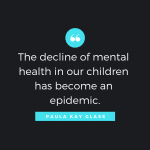Have you signed up for The Educator’s Room Daily Newsletter? Click here and support independent journalism!
Are you exhausted beyond the point of no return? Does your exhaustion signal an exodus? If your answer is yes, are you pretty darn close to saying enough is enough? You are not alone! The education world is in crisis due to the departure of an extraordinary number of teachers and principals from the field.
Some people have not made a final decision yet. In a January 2022 poll of members of the country’s largest teacher union, the National Education Association, 55% of educators said the pandemic has made them more likely to leave the teaching profession earlier than they had planned.
Notice the words “more likely to leave the teaching profession.” Those words signal that leaving the profession may not be immediate. What things should you have in place before quitting the education field? It would help if you made plans before walking away from your teaching or administration job. Let’s explore four areas of your life where you should have plans.
Financial Plans
First, are you financially fit to quit your job? Walking away is more complicated than most people realize. When you resign or retire, what will be your income source? How will you pay your monthly rent or mortgage, bills, and other living expenses? These are essential questions! There’s a saying, “Money talks and BS walks.”
These expenses don’t stop when you quit. Items include checking and savings accounts, 401K and 403B retirement accounts, IRAs, mutual funds, and stock accounts. Explore how you can sustain yourself financially if you don’t have another position.
Check your expenses to see what items to eliminate. Do you need that cup of expensive coffee each day? Is cable TV worth the monthly cost? Determine what is essential to you and make hard decisions about what needs to go. Remember, the bills do not stop because you stopped working.
Healthcare and Benefits
Something that may end when you quit your job is healthcare benefits. Your current job offers medical, dental, and vision benefits. What happens when you resign? Can you continue coverage through COBRA? Health insurance is a necessity, especially if you have a family. It’s necessary to do your research about what is available to you. The government provides information on the Healthcare Marketplace website. Coverage via COBRA allows you to keep your current benefits for up to 18 months; however, you pay the cost instead of your employer. Before you walk away from your position, you must explore all of your options regarding health insurance.
Family Support
Do a pulse check on your support systems when you make a life-changing decision. Family and social support networks are crucial to getting through difficult times. It will be best if you have people you can rely on to help you meet your social needs. Once you decide to walk away from teaching, you may have unexpected emotions. At first, there may be a sense of relief and peace of mind. If you did not plan well, there might be a sense of anxiety, fear, or even depression. Family and friends will need to be there for comfort and support.
Job Prospects
Everyone is talking about the great resignation. It is all over the media that people are walking away from their schools or companies. The small print doesn’t tell you that looking for a new job takes time and energy. The best time to look for a job is while you have one.
Do you have another job lined up, or are you applying for a new position? Job searching while you already have a paycheck has advantages and disadvantages. Remember, it can take months, several interviews, and a lengthy onboarding process to land a new position at a different district or company.
Before starting a job search, determine what type of position you want. Are you making a career change? What skills do you bring to a new career, and how well do they transfer over to the unique opportunity. Do not be afraid to ask questions during an interview. Ask why the position is open or why did the previous worker leave. Make sure to do your homework and research before accepting an offer.
As you prepare to leave, create a list of things you’re leaving behind, i.e., salary, benefits, perks, etc. Take a moment to review these suggestions and let them marinate:
- Search and then inhale and exhale. See what’s out there and take time to self-evaluate.
- Determine the salary range you are seeking. Competition is tough, and some candidates are more affordable to hiring companies. You will compete against many other educators who are also job hunting.
- Continue to meet your professional obligations. Don’t neglect your current duties because you still have professional and personal responsibilities.
Plan Before You Quit
It’s challenging to work when frustrated, exhausted, and stressed out. Since the pandemic, we know the education field has been filled with landmines lately. You walk on emotional eggshells every day. You may want to decide in haste, but suffering the consequences may worsen. That is why it is essential to plan before quitting your job. The best advice for you to know and remember is before you leave, have a plan.
Editor’s Note: If you enjoyed this article, please become a Patreon supporter by clicking here.






